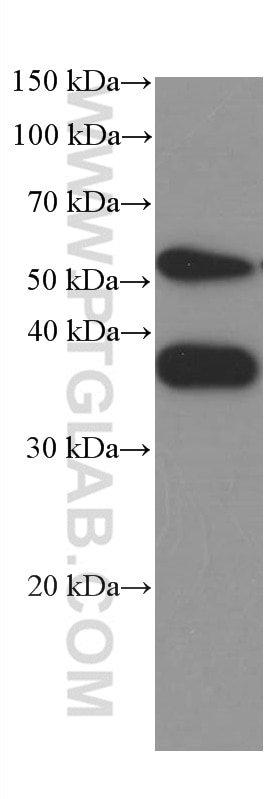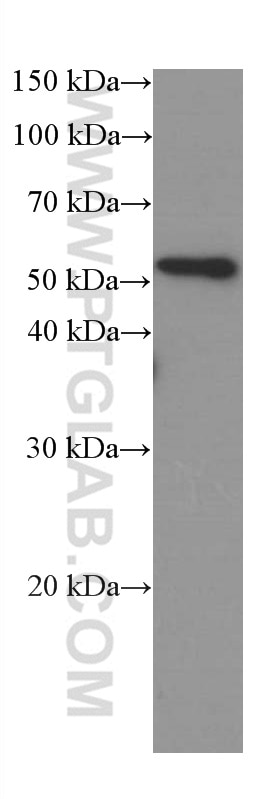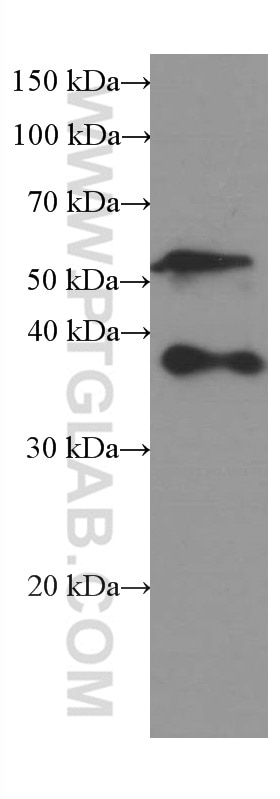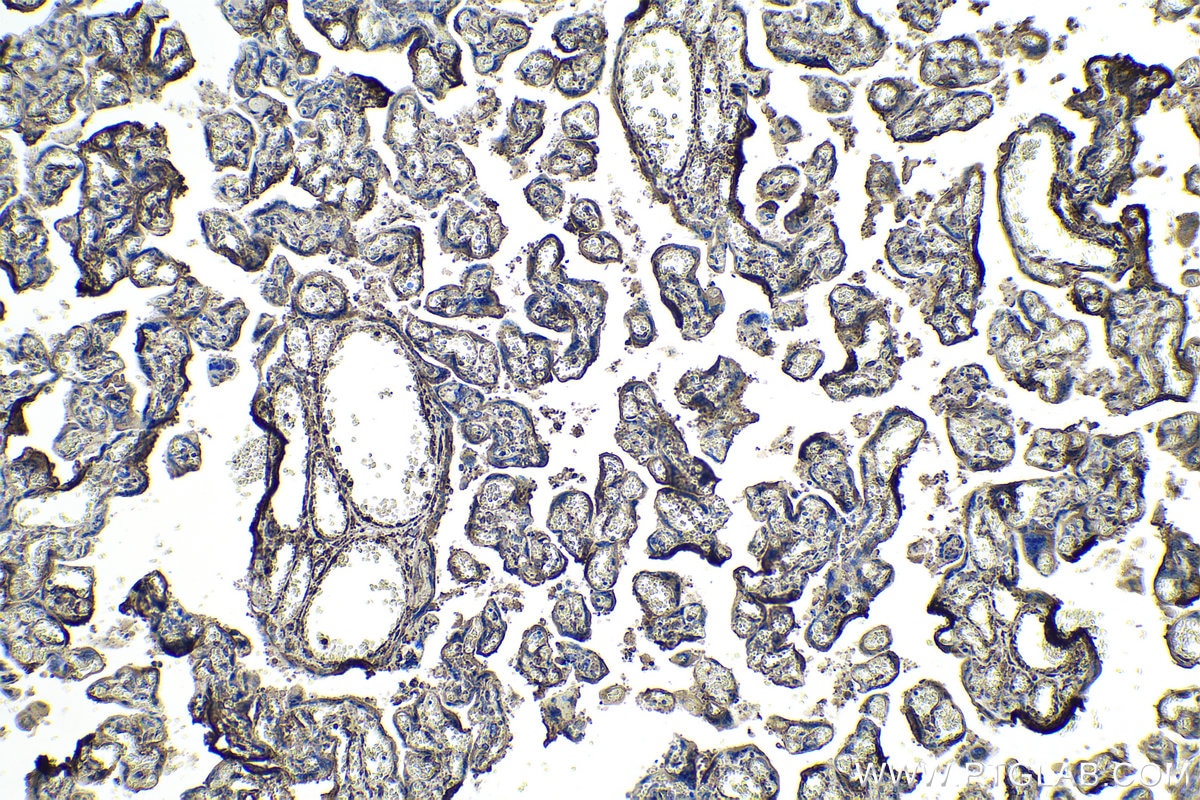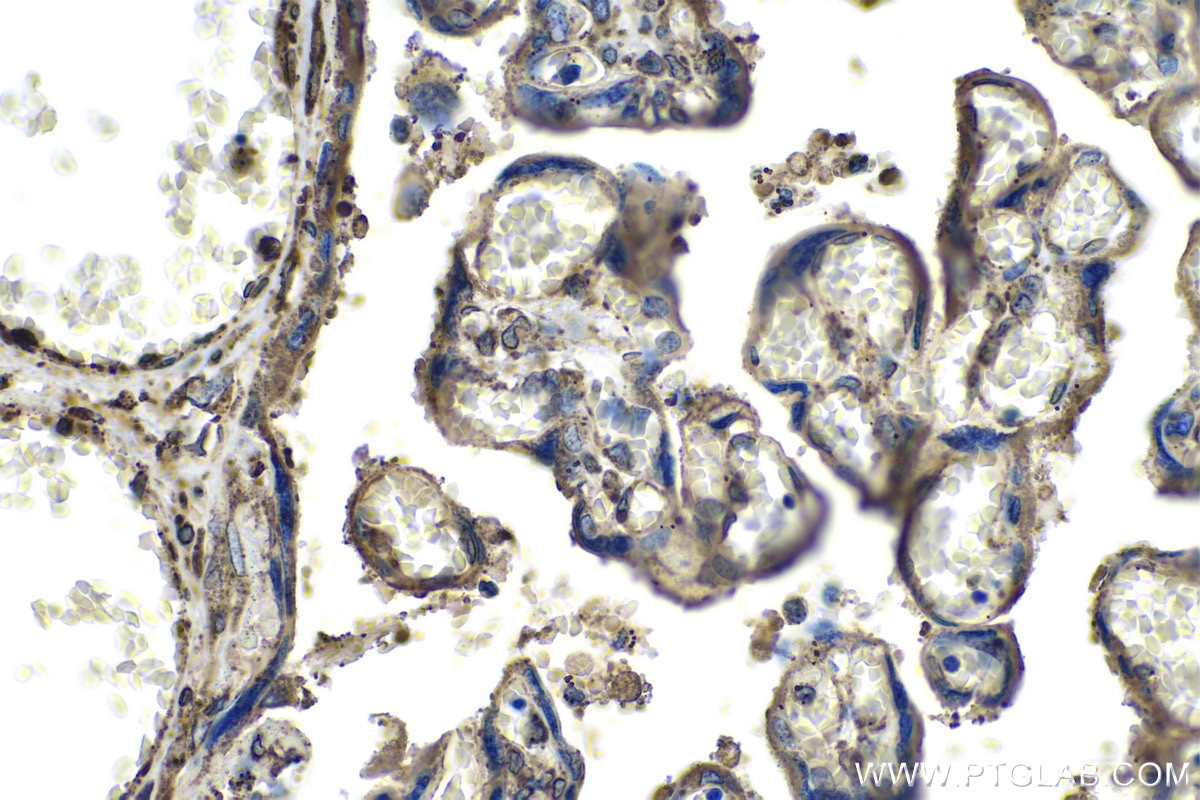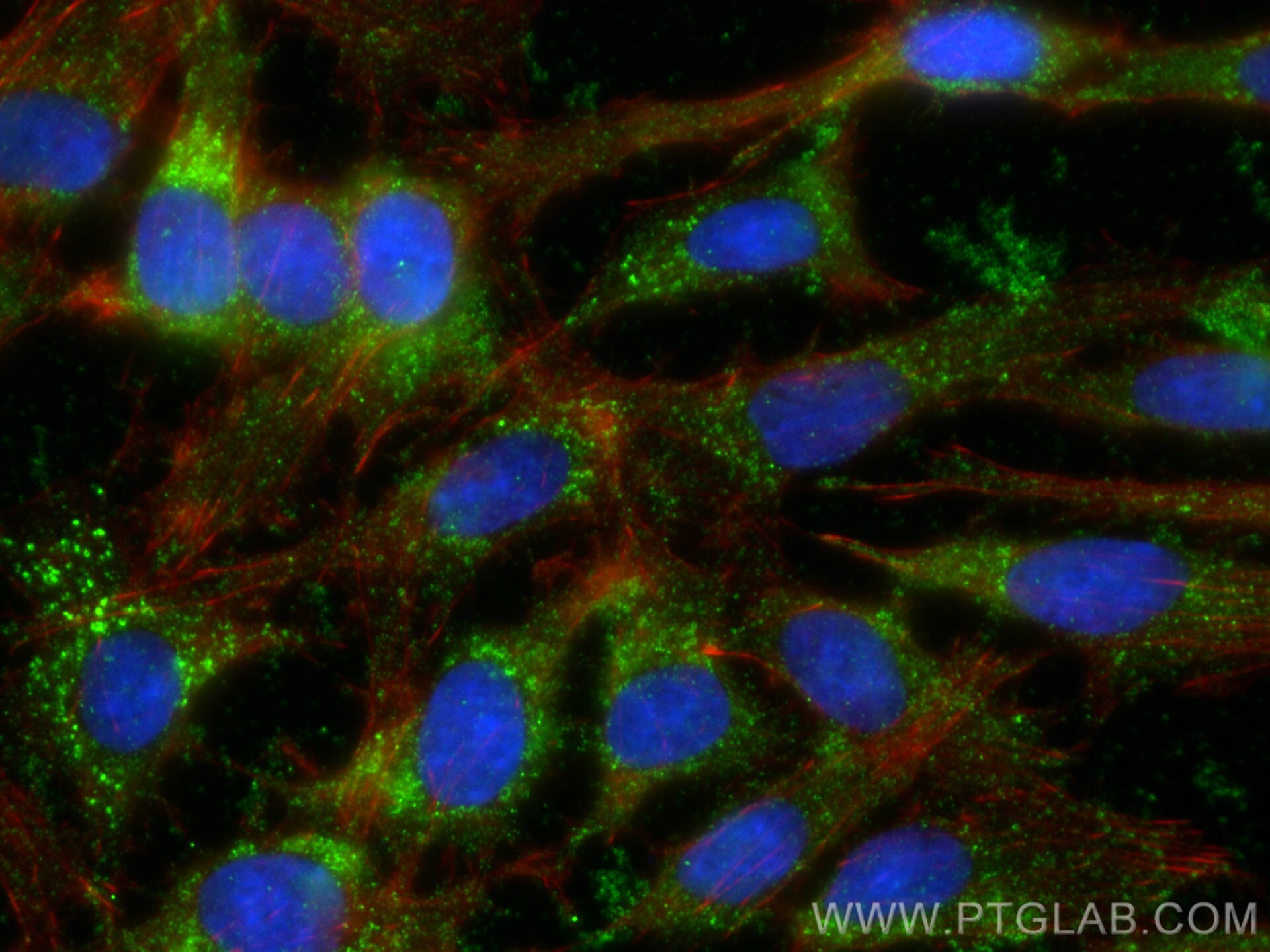Anticorps Monoclonal anti-SPARC
SPARC Monoclonal Antibody for WB, IHC, IF/ICC, Indirect ELISA
Hôte / Isotype
Mouse / IgG2a
Réactivité testée
Humain
Applications
WB, IHC, IF/ICC, Indirect ELISA
Conjugaison
Non conjugué
CloneNo.
1A2C1
N° de cat : 66426-1-PBS
Synonymes
Galerie de données de validation
Informations sur le produit
66426-1-PBS cible SPARC dans les applications de WB, IHC, IF/ICC, Indirect ELISA et montre une réactivité avec des échantillons Humain
| Réactivité | Humain |
| Hôte / Isotype | Mouse / IgG2a |
| Clonalité | Monoclonal |
| Type | Anticorps |
| Immunogène | SPARC Protéine recombinante Ag7390 |
| Nom complet | secreted protein, acidic, cysteine-rich (osteonectin) |
| Masse moléculaire calculée | 35 kDa |
| Poids moléculaire observé | 38 kDa, 52 kDa |
| Numéro d’acquisition GenBank | BC004974 |
| Symbole du gène | SPARC |
| Identification du gène (NCBI) | 6678 |
| Conjugaison | Non conjugué |
| Forme | Liquide |
| Méthode de purification | Purification par protéine A |
| Tampon de stockage | PBS only |
| Conditions de stockage | Store at -80°C. 20ul contiennent 0,1% de BSA. |
Informations générales
SPARC, also known as ON (Osteonectin) or BM-40 (Basement-membrane protein 40), is an extracellular glycoprotein with the calculated molecular mass of 35 kDa and the apparent molecular mass of 40-43 kDa and 50 kDa (PMID: 7495300, 12365801). SPARC belongs to a group of matricellular proteins defined as secreted components that do not contribute directly to the formation of structural elements but serve to modulate cell-matrix interactions and cellular functions (PMID: 7542656; 12231357). SPARC is expressed at high levels in bone tissue, is distributed widely in many other tissues and cell types, and is associated generally with tissues undergoing morphogenesis, remodeling and wound repair (PMID: 10567433). It elicits changes in cell shape, inhibits cell-cycle progression, and influences the synthesis of extracellular matrix (PMID: 12721366). Altered expression of SPARC has been reported in a variety of cancers, which include breast, ovarian, colorectal, and pancreatic cancer as well as melanoma and glioblastomas (PMID: 18849185).
